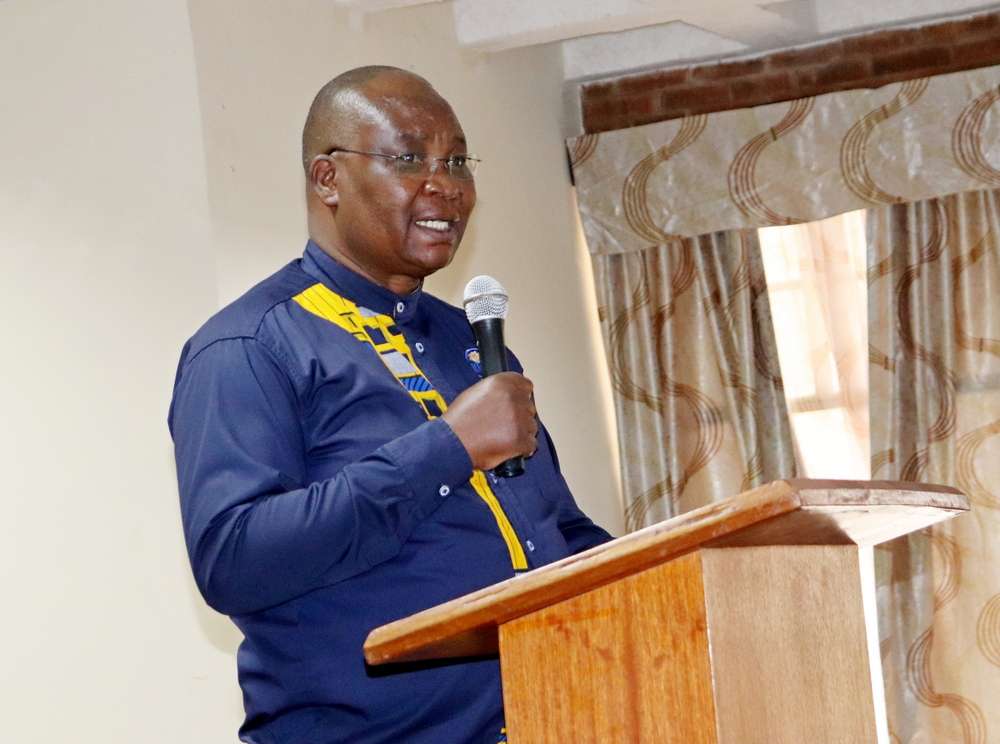The Ksh 104 billion Social Health Insurance Fund’s (SHIF) Integrated Healthcare Information Technology System (IHTS) has come under fresh scrutiny following revelations of a potential conflict of interest involving Safaricom, the lead player in the high-value contract. The IHTS, which was intended to enhance healthcare services across Kenya, has instead left hospitals and patients grappling with serious operational challenges, sparking public outrage.
At the heart of the controversy is the consortium led by Safaricom, tasked with delivering the IHTS. According to new information, Konvergenz Networks Ltd., a key partner in the consortium, is linked to Sportpesa through shared ownership structures where Safaricom holds a 25% stake in Sportpesa’s parent company, Milestones Games Ltd. Konvergenz Networks Ltd. is a partner in Commtech Consortium Ltd., another key player in the IHTS contract, and this intricate web of partnerships is raising concerns about undisclosed corporate interests.

A deep dive into company records reveals that Commtech Consortium Ltd. is owned by NOB Five Ltd. and Bernard Chauro Matoke, a listed director. On July 31, Commtech acquired a stake in Konvergenz Networks Ltd, joining Safaricom and Apiero Ltd in offering technological support to the SHIF system.
The transaction between Commtech and Konvergenz was greenlit by the Competition Authority of Kenya (CAK) under the provisions of the Competition Act of 2010. The Authority, in a Kenya Gazette notice, indicated that the acquisition would not negatively impact competition. It stated that while the gross turnover of the merging parties for 2022 exceeded Ksh. 922 million, this was below the one billion shilling threshold required to trigger more stringent oversight.
However, new details have surfaced, linking Commtech Consortium to key Safaricom personnel through a proxy network of shareholders. Notably, employees from the law firm Hamilton Harrison and Mathews (HHM), where Safaricom Chairman Adil Khawaja serves as managing partner, own shares in Commtech. Lawyers Deborah Linet Ontiri (80%) and Peter Jr. Okaalet (20%), both HHM employees, have been identified as key shareholders in Commtech Consortium Ltd. This association raises red flags over the integrity of the bidding and procurement process.
Critics argue that Safaricom, through its consortium, is leveraging these complex corporate relationships to push through the IHTS system, which has already been plagued by inefficiencies and widespread criticism. A whistleblower alleges that Sportpesa, through its proxy involvement with Commtech, is playing a significant role in advancing the consortium’s interests at the expense of healthcare reform in the country.
The SHIF contract was designed to create a fully integrated, digital platform aimed at improving patient care, optimizing healthcare operations, and strengthening the supply chain for medical products. It included plans to roll out 70,000 mobile tablets, 5,000 laptops, reliable internet connectivity, and power backup systems to healthcare workers nationwide. Additionally, a health cloud was to be established to securely store patient data, compliant with Kenyan data protection laws.
However, the implementation of the system has encountered serious obstacles. Hospitals have reported numerous difficulties with the technology, and patients have complained of delays in receiving care due to system failures.
Busia Senator Okiya Omtatah and other petitioners are currently seeking a court order to halt the scheme’s implementation. According to court filings, they allege that the Safaricom consortium is involved in a fraudulent scheme with corrupt government officials, designed to profit at the expense of Kenyan taxpayers.
“The Safaricom consortium masquerades as investors, but they will not invest a single cent into the Kenyan economy,” the petitioners claim. “They are merely software vendors, retaining full rights to their products, including the right to sell them to third parties, while charging Kenyans for the use of the technology.”
The case, which highlights deep-rooted issues of conflict of interest and corporate manipulation, has placed a spotlight on Kenya’s healthcare system and the broader question of public procurement integrity. As the legal battle unfolds, the SHIF contract will undoubtedly remain a focal point for scrutiny.





